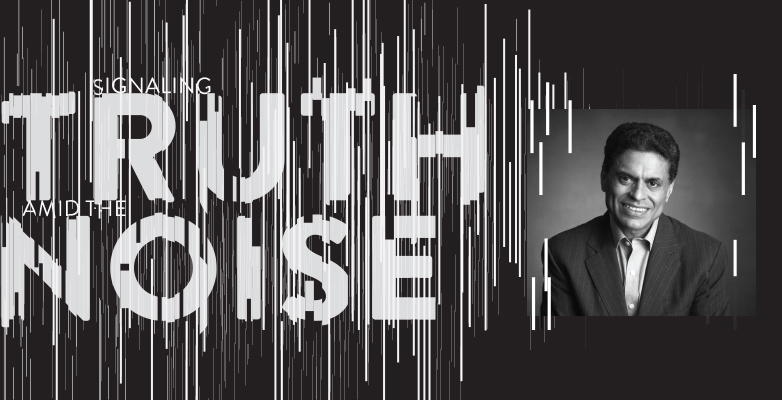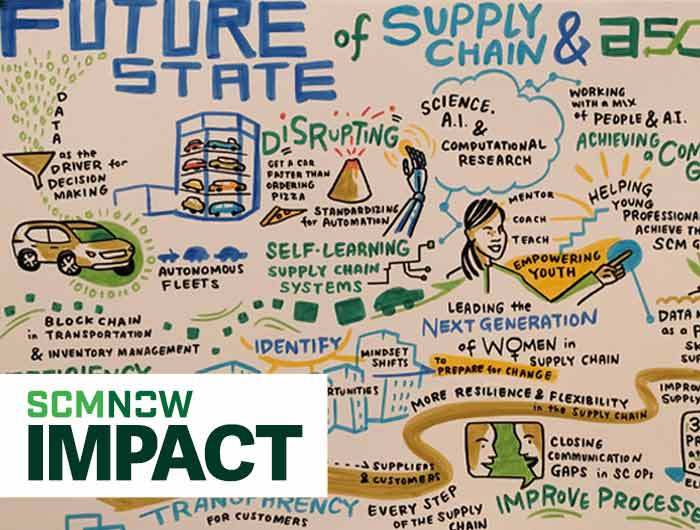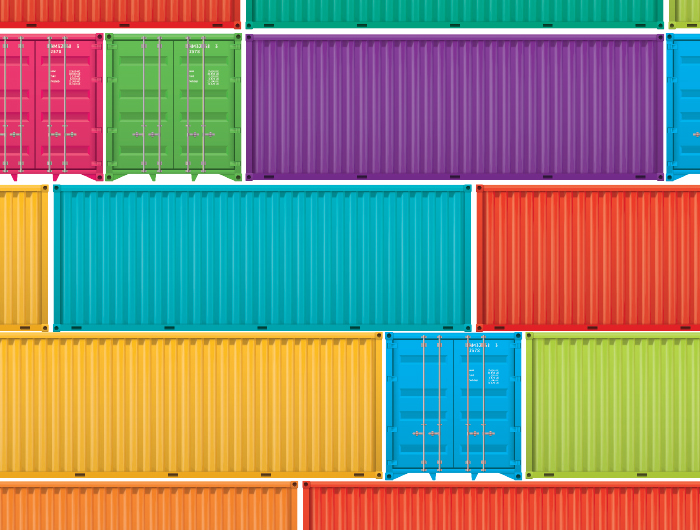Editor’s note: Hailed as “the most influential foreign policy adviser of his generation” by Esquire magazine, Fareed Zakaria is host of CNN’s “Fareed Zakaria Global Public Square (GPS),” a Washington Post columnist, contributing editor at The Atlantic and a bestselling author. He was recently named a “Top 10 Global Thinker” by Foreign Policy magazine, which describes his show as “a rare haven of smart takes on world affairs.” SCM Now magazine Editor-in-Chief Elizabeth Rennie recently had the opportunity to speak with Zakaria, who will present a general session at ASCM 2019, about being a journalist today, how to ensure people of all experiences and skill levels can be successful in the labor markets of the future, and the importance of maintaining a global perspective.
Rennie:What does it mean to you to be a political analyst and journalist in this day and age?
Zakaria:I’ve always approached journalism from the point of view that it is many things. It has to be entertaining and it has to be lively. But it is fundamentally public education. That is the purpose of journalism, that is why it’s particularly important to democracy, and that is why it’s the only industry protected by the American Constitution. I take that charge seriously.
I understand these are for-profit businesses. You have to keep the viewer’s attention. You have to keep the reader’s attention. I don’t forget that, ever. But you do have to remember it’s not just about that. We are inundated with noise right now … . Much of it is trivial nonsense. Figuring out what the signal is within that noise — what is really important and what is lasting — is a more urgent and important task now than ever before. It’s going to be the way of the future. We are drowning in data and drowning in information while searching for knowledge. In that circumstance, trying to provide intelligent journalism is an even more worthwhile enterprise.
Rennie:More people are captivated by what’s going on, but there’s also a fair amount of hostility toward the press. How do these things influence your perspective on the profession?
Zakaria:It’s fascinating, exciting and inspiring. There’s a lot of news. A lot of it is important because these are big things happening in the world: the rise of populism, the election of Trump, Brexit, the rise of these new populist forces. They’re consequential.
There is also a piece of this [that] is kind of an attack on the free press — an attack on journalism and truth and facts. You feel as though your job is more important and that you are doing something crucial. … Despite having a certain amount of pressure on the media, the media has not buckled. The media has been able to perform its essential function of investigation, truth-telling and being a check on any kind of power. … These institutions have managed to function despite a lot of pressure on them. You feel like, when you get up in the morning, you’re doing something important. For that reason, it’s inspiring.
Now, would I prefer for the health of democracy that there weren’t these attacks on the media? Yes, I would. All things being equal, I would prefer not having the President of the United States call the press the “enemy of the people.”
Rennie:There have been a few times in your career when you faced a different challenge: You have been at the center of some plagiarism controversies. Can you tell me what that was like for you?
Zakaria:It was devastating because I try to pride myself on not just the professionalism of my work but my personal integrity. To have it questioned was devastating. There were places where I was sloppy, and I was very regretful of that and apologized. Four news organizations looked into it; all concluded that, where there was a problem and there was sloppiness, there was no plagiarism.
It was still a terrible feeling to have made mistakes. It is a terrible feeling to let people down. It is a terrible feeling to have fell short of my own standards. What I tried to do was just buckle down, work harder and make sure that the work is even more careful and well-sourced — without even a hint of an error anywhere. I hope that people will judge it in the context of a career.
Rennie: Absolutely. Journalism as a career in the digital age is a huge challenge. Having to produce constant content, drive traffic, get clicks — they all threaten accuracy and make it easy to lose control over the information you’re presenting. Yet, as you say, we can think through something and make the right decision. This is actually an interesting segue to my next question, which is about your views on machine learning, human-robot collaboration, artificial intelligence (AI) and similar advances. How will humans use their unique abilities to succeed in the labor markets of the future?
Zakaria: There are limits to what AI can do and limits to what machine learning can do. … AI is a very powerful way to assist human beings in doing things but won’t replace them altogether. And as you say, there are a certain amount of common-sense skills that computers simply cannot, at this point, acquire. There’s judgment, there’s ethical choices, there’s the communication of ideas to other human beings, there’s empathy. It’s not one thing; there’s a whole range of things that human beings are actually much better at.
There are certainly going to be areas where a computer and AI just take over something routine. … The emphasis then becomes, for the human being, on the strategy, on the judgment, on how to think — which is not a bad thing. In a sense, what human beings will be free to do is spend more time on the higher cognitive functions — problem-solving, judgment, strategy, human relationships and teamwork — rather than very routine mechanical processes. If we can work this out correctly, we will find that it has the potential to allow human beings to do more interesting things better and to leave the duller things for the computer.
Rennie: What strategies do you believe are necessary in order for us to “work this out correctly,” as you put it?
Zakaria: At the end of the day, there is going to be pressure on people who have medium skills and can only do very simple tasks. We can’t pretend that this isn’t the case. There is going to be a displacement of labor, but I don’t think it’s going to be as widespread and universal as everyone makes it out to be. Unfortunately, like everything that’s happening here, you’re sorting the population yet again into winners and losers. The winners take all, and the losers get left with very little.
On this issue, I have a very ambitious idea, which is that we should approach training, retraining, upskilling the way we approached helping the American labor force after World War II, which was the GI bill. If you think about the GI bill, it was basically a system where you said, “The public sector will pay, the government will pay, coursework will be provided, and colleges will enroll anyone. They will take people in. And industry will be encouraged to help these GIs get jobs afterward.”
Think about a triangle. The private sector tries to help explain what are the needs of the time — what are the skills that are lacking? The educational establishment tries to provide the courses and the teaching. And the government largely pays the bill. … It’s not going to be cheap. I think that’s the part that we have to accept: When you talk about these issues, there’s no free lunch.
Rennie: Looking beyond the American labor force now, in a recent column you talked about isolationism and the challenges it causes. Why is maintaining a global perspective so essential these days?
Zakaria: The fundamental reality of the world — the economic environment we live in now — is that it’s global. … The economy has become genuinely a global economy. As the world becomes more digital, the barriers become meaningless. How can you not think in global terms? How can you not be thinking about your sources, your ideas, your financing, your capital, your execution, your market?
You have to think of them all on a global scale — not just because that’s where the opportunities are, but because, otherwise, you will find you’re going to get killed by somebody else who is thinking globally. Somebody else can source material or labor cheaper than you; they can find markets you can’t find. If they’ve benchmarked to a business process or a technology that’s been successfully proven in some other country, and you’re not looking at all that, you’re at a huge competitive disadvantage. … There are many, many areas like that where we have a lot to learn from the world. You can close yourself off, but you will pay a price.
Rennie: How can supply chain management professionals use this global perspective to help make supply chains a force for good? At ASCM, we believe strongly that supply chain really can create a better world. You’ve made similar comments about how globalization improves economies and lives. What message would you share with our members about something they can do to help make this possible?
Zakaria: I think the most important thing they should do is to really try to benchmark to the best. In America, we don’t do that enough because it’s a very large internal economy, we’re a very large country. ... There isn’t that tendency to constantly look around.
There’s a lot of really interesting stuff happening around the world. Particularly, if you ask yourself, “How are companies in smaller countries doing things?” — because they’re more pressed; they’re under pressure. You might find that you’ll learn a lot more than you realize. It’s a very good discipline in any case, but it is particularly important in today’s world.
Rennie: You’ll be joining us in Las Vegas this September. What do ASCM 2019 attendees have to look forward to from your keynote?
Zakaria: They can look forward to what I hope will be an interesting, entertaining and educational picture of the world and the major trend lines. As I say, I try to focus on the signal amidst the noise — the things you really need to pay attention to and what is really important. I have to confess, though: I can’t tell you today because I never give the same talk twice. I’ll be looking at what’s going on and make sure that I’m talking about the world that you’re actually living in that month, that week, that day.



